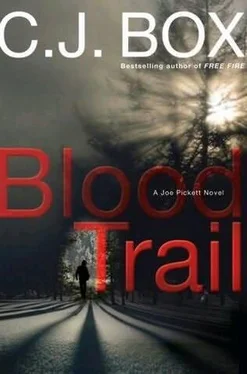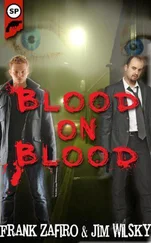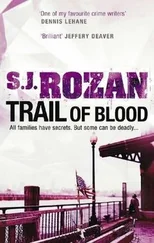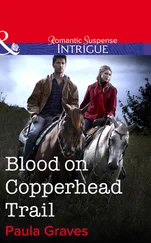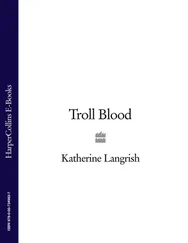Mrs. Whaling was fond of guest speakers. She was also fond of showing movies during classtime that stretched over several days, silent reading, and hour-long forays into topics that had nothing to do with the curriculum. Sheridan found the class a waste of time, but couldn’t transfer out because she needed the requirement. She did her best to feign interest, read the textbook even though she wasn’t sure Mrs. Whaling had looked at it in years, and try not to laugh at Jarrod’s mumbled stupid jokes. He could be funny in an irreverent, sophomoric way, she had to admit.
Today was worse than most days already, though, because of what had happened at home the night before and that morning. A sense of dread had enveloped her before she entered the building that morning and she had trouble shedding it or pushing it aside. She’d not been able to concentrate on anything at school because her head and heart were at home, with her mom, with her dad.
She almost didn’t notice when Mrs. Whaling opened the door to the hallway. A big man with flowing blond hair and a barrel chest and a thousand-megawatt smile came in trailing a dark, pretty woman pushing a stroller.
“Kids,” Mrs. Whaling said beaming, grasping her hands together in thrall in front of her bosom, “this is Klamath Moore.”
“Save the wildlife!” Klamath Moore boomed, thrusting his arms into the air as if signaling a touchdown.
SHERIDAN HAD been awakened by the telephone ringing at five-thirty that morning, a sound she normally would have slept right through. But it was the way her mother answered it out in the hall and talked-with such emotional earnestness and gravity-that connected with Sheridan’s semiconsciousness in a primal mother-daughter way and jerked her awake. She lay there for a few moments in the darkness, hearing snatches of conversation as her mother paced up and down the hall the way she did when a situation was serious:
“Not Robey? Oh my God, Joe…”
“… hospital…”
“Three people shot and the other two dead…”
“Are you sure you’re okay?…”
“How could this happen?”
“Why did this Lothar guy start shooting? Why didn’t he identify himself? He put both of you in danger…”
“Another poker chip?”
“This is awful, Joe, just awful…”
Sheridan wrapped herself in her robe and found her mother sitting at the kitchen table looking pale, her eyes hollow and staring at nothing at all, her hands and the cordless phone on her lap as the coffeemaker percolated on the counter.
“Mom?”
Her mother jumped at the greeting, and quickly tried to assume her usual confident look of parental authority. Sheridan appreciated the attempt although it was a failure.
“Are you okay? Is Dad okay?”
“Okay is not the word for it,” her mom said. “I just talked to him. He’s at the hospital. Our friend Robey Hersig is in critical condition and not expected to last the morning.” Her mom took a deep breath, fighting back tears of frustration, and when she did so Sheridan felt a sympathetic welling in her own eyes even though she didn’t yet know what the situation was, only that it was affecting her mother so deeply that she was talking to her adult-to-adult, which was both thrilling and frightening at the same time.
“Robey was shot last night up in the mountains where your dad was. Two other men were killed, one by accident, one not by accident-”
Sheridan interrupted, “But Dad’s all right?”
Her mom nodded and her face softened. “He’s not hurt. But he’s hurting, and I feel for him. He said the man who shot the hunter came back and killed Robey and another man I don’t know. It’s complicated. He says he feels guilty he’s the only one who made it through unscathed, that it was pure luck.”
“Thank God he’s okay,” Sheridan said.
“Yes, thank God for that. But poor Nancy Hersig and their two children. I can’t even imagine…”
Sheridan pictured the Hersig kids. A boy who was a junior in high school and somewhat of a derelict, and a girl in junior high she’d last seen clutching a lunch sack and backpack on the school bus.
“Will Mr. Hersig make it, do you think?”
“Joe said the doctors doubt it. But we can pray for him.”
Sheridan shook her head. She didn’t want all the horrible details but she was confused as to what had happened. She wasn’t sure her mom even knew everything.
“Come here,” her mom said, extending her arms.
Sheridan did, and let her mother pull her close and squeeze her the way she hadn’t, it seemed, in years. Sheridan squeezed back.
“Your poor father,” her mom said. “He’s sick about this.”
“I’m just glad he’s not hurt.”
“Me too, darling,” her mom said. “Me too. But like him, I feel a little guilty for being so happy he is the only one who made it through the night.”
“What’s going on?” Lucy asked from the doorway.
Sheridan and her mother quickly released each other, her mom becoming a mother again. Sheridan morphed into the role of older sister.
As her mom sat Lucy down to tell her everything was all right, that there’d been an accident but her dad was okay, the telephone rang. Sheridan answered, hoping it would be her father.
“Hello, little lady,” the voice said. “May I please speak with Joe?”
“Who is calling?”
“My name’s Spencer Rulon. I’m the governor of Wyoming.”
At the name, Sheridan narrowed her eyes, pursed her lips, said, “Quit trying to get my dad killed.”
“Honey… I…” he stammered.
Her mom wrenched the phone away from her before she could say more.
KLAMATH MOORE paced the front of the classroom like a big cat in a cage, his shoulders thrust forward, his hands grasped behind his back, moving as if propelled by internal demons that would not let him rest.
Mrs. Whaling said, “By point of introduction, I’ve been following Mr. Moore and his cause for quite some time, long before I moved here from Vermont. I read his blog daily and I’ve seen him talk and debate on CNN and other networks. He’s very controversial but very interesting, and he has some important things to say. When I heard he was here in our little community, I just had to invite him to school. Please welcome Mr. Klamath Moore…” She stepped back and clapped, which at first was a dry, hollow sound in the room until the class got the message and joined in.
He said, “When your teacher called me this morning to ask if I could come talk to you before my press conference this afternoon, I jumped at the chance. Because any opportunity I have to address our nation’s youth is vitally important. I appreciate it very much, and I thank you, Mrs. Whaling.” He nodded to her as he said her name, and she blushed.
“Life without hunting is not only possible, it’s important,” Moore boomed. “Think about it. There was a time when it was a matter of life or death for human beings to hunt animals in order for people to survive. If the caveman didn’t go out and kill a mastodon, his babies didn’t eat. And even a hundred years ago there were still places in these United States where people hunted for subsistence because they had no choice.”
Klamath Moore suddenly stopped and swept his eyes across the room, pausing for great effect, before whispering, “That time has passed.”
He made it a point to find and hold sets of eyes until the viewer had no quarter and was forced to look away, conceding Moore’s superior focus and passion. His voice was deep and raspy, his words dramatic, if well rehearsed, Sheridan thought. She recognized much of the exact wording from his website.
“I’m not saying there aren’t still a few places on this earth where hunting is necessary, for remote tribes in remote places. But in this day and age, where technology has made it possible to feed us all without our having to go out and get our hands bloody, hunting is an anachronism. Can anyone in this room tell me why there are men in the richest country on the face of the earth who find it necessary to take a gun they shouldn’t be allowed to have in the first place and go out into our nature-that’s right, it belongs to all of us-and kill an innocent animal with a high-powered rifle simply for the twisted fun of it? How would you like it if somebody killed your pet dogs and cats, or your little sisters or brothers… simply because they loved doing it? It’s the same thing, believe me.”
Читать дальше
